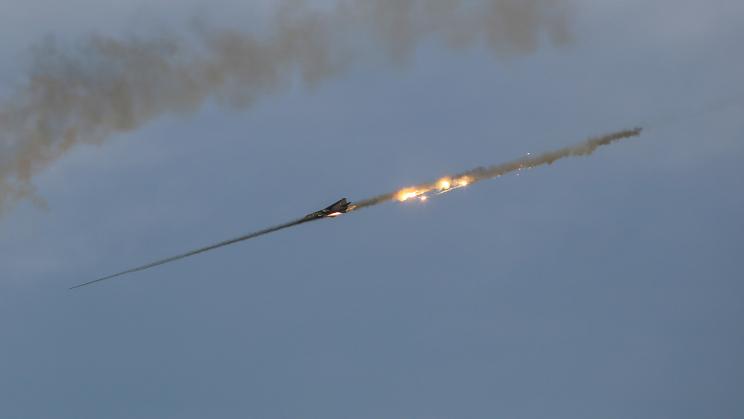
SIPRI is pleased to launch a new video series on perceptions of nuclear challenges in South Asia, featuring experts from India, Pakistan, Russia and the United States.
The interviews were conducted as a part of the more comprehensive research project ‘Assessing Nuclear Deterrence Risks and Challenges in South Asia’. The series gives a voice to key players in the field, working towards a mutual understanding of the complexity of nuclear challenges that are impacting South Asia today. Among the challenges highlighted are the active territorial disputes in South Asia between nuclear-armed states that pose escalatory risks; a multilateral arms competition involving possessors of nuclear weapons and non-nuclear weapon states; and challenges posed by technological advancements in the military domain. The series also aims to identify concrete recommendations on engagement between the countries and transparency and confidence-building measures to address these nuclear risks.
Watch the expert interviews with:
- Dr Manpreet Sethi, Senior Fellow, Centre for Air Power Studies
- Dr Rabia Akhtar, Director, Centre for Security, Strategy and Policy Research, University of Lahore
- Lt Gen (Retd) Dr Prakash Menon, Director, Strategic Studies Programme, Takshashila Institution
- Professor Tatiana Shaumyan, Head of the Center for Indian Studies, Institute of Oriental Studies, Russian Academy of Sciences
- Dr Christopher Clary, Assistant Professor of Political Science, University of Albany
About the project
The SIPRI project ‘Assessing Nuclear Deterrence Risks and Challenges in South Asia’ seeks to facilitate regional dialogues to enhance awareness of the escalatory risks associated with expanding nuclear capabilities and introducing advanced technologies. This project aims to provide background and context for understanding nuclear risks through these interactions, particularly given recent tensions at the India–Pakistan and India–China borders. It also seeks to use the regional dialogues to identify nuclear risk prevention and mitigation measures involving regional and external actors. The project’s long-term objective is to expand the dialogue on nuclear postures beyond the five nuclear weapon states that are members of the 1968 Treaty on the Non-Proliferation of Nuclear Weapons (NPT). While acknowledging the importance of the dialogue among these five countries, this project explores potential ways to engage nuclear weapon states inside and outside the NPT framework with the substantial exchanges on doctrines and capabilities. The project has issued several online commentary pieces, hosted a workshop and plans to launch more publications in the future.
About SIPRI’s films
SIPRI produces a variety of videos to cater for different viewing preferences and serve as an alternative platform for providing insights on peace and security. Events are a core component of SIPRI’s outreach, and livestreams and recordings of SIPRI’s conferences and seminars are produced on a regular basis. Watch more films over on SIPRI’s YouTube channel.